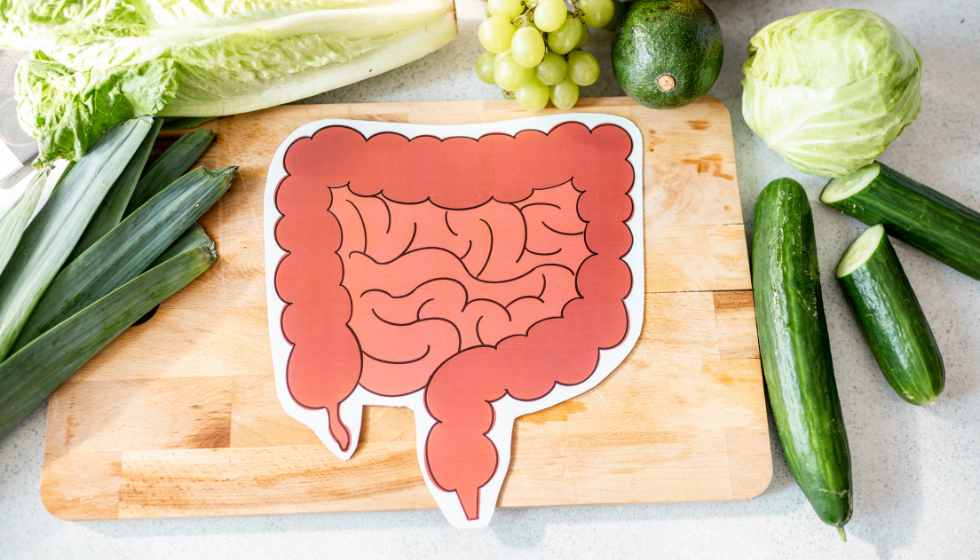

What you eat nourishes and energizes you. But did you know that certain foods contribute to healthy digestion, fight constipation, and support the activity of good bacteria in the gut?
In the case of an otherwise healthy person, constipation, heartburn, bloating and flatulence are just a few of the discomforts they may experience if they do not have adequate nutrition.
For good digestion, you need to eat foods rich in fibre and drink a sufficient amount of water. But be careful; if you are not used to eating larger amounts of fibre, start gradually adding it to your daily menu. Here are the foods that aid digestion in both the stomach and intestines.
Our country has plenty of apples; choose an assortment – or several – that suits your taste to eat them with breakfast or between meals. Apples are rich in pectin, a soluble fibre used by friendly bacteria in the colon and help fight constipation and lower the risk of intestinal infections.
A great source of fibre is also beetroot, which, once consumed, goes through the digestion process in the stomach and reaches the colon, where it feeds the colonies of good bacteria. Although it is more demanding because it stains hands and surfaces after peeling, beets can be integrated into many dishes, raw and boiled or baked.
Green leafy vegetables – spinach, cabbage, Swiss chard, arugula, etc. – are also excellent choices for a la carte digestion. Some research has shown that these vegetables contain a substance that feeds the good bacteria in the digestive tract, thus stimulating digestion. The easiest is to eat them raw, in the form of a salad, with a pinch of salt, a little lemon juice and a teaspoon of oil with lunch or dinner.
Ginger improves digestion by helping to empty the stomach faster, thus reducing the risk of heartburn and gastric discomfort. It is also useful to combat nausea. Consume an inch or two of raw ginger, grated in a salad or cooked in a curry, or make ginger tea with lemon.
Thanks to the fermentation, sauerkraut contains probiotics and other substances that help break down other foods into smaller and more easily digestible molecules. You can introduce sauerkraut to the menu easily, either as a simple salad with a little pepper and oil, alongside a stew, or add it to a dip with hummus, meatballs and raw vegetables, for example.
These foods are rich in probiotics, those good bacteria that contribute to the more efficient functioning of the digestive system. Probiotics also exist naturally in the gut, but increasing their amount through food makes digestion easier. Eat yoghurt in the morning, with cereal and fruit, or as a snack between meals, along with a handful of nuts. Or, you can make a cold yoghurt sauce with garlic or other spices, which you can put on top of broccoli and baked fish for dinner, for example.
Whether you choose whole grains for breakfast, whole grain bread and whole grain pasta in the morning or other meals of the day, it’s good to know that they all help with better digestion. The fibres in these whole foods fight constipation, and some act as prebiotics, ending in the gut as food for probiotics.
Rich in Omega 3 fatty acids, salmon helps reduce inflammation. Therefore, it can be useful for digestion, especially for people suffering from inflammatory bowel disease or other digestive disorders associated with inflammation. Eat steamed or baked salmon, with a boiled potato and other boiled or baked vegetables, according to your preferences (broccoli, cauliflower, mushrooms, etc.), along with a garlic dip, for example.
This post was last modified on January 2, 2023
Pregnancy is a huge hormonal change for a woman. It is said that women somehow…
You may have searched for “women squirting” on the internet and looking to find out…
Introduction: What Are Reverse Travel Goals? People now find reverse travel goals more appealing because…
Anxious at Work these days is becoming too common among young employees to middle-aged employees…
Going on a first dinner date, whether your first or someone else's, is an exhilarating…
Health is one of the major things for everyone; everyone has to consider health as…